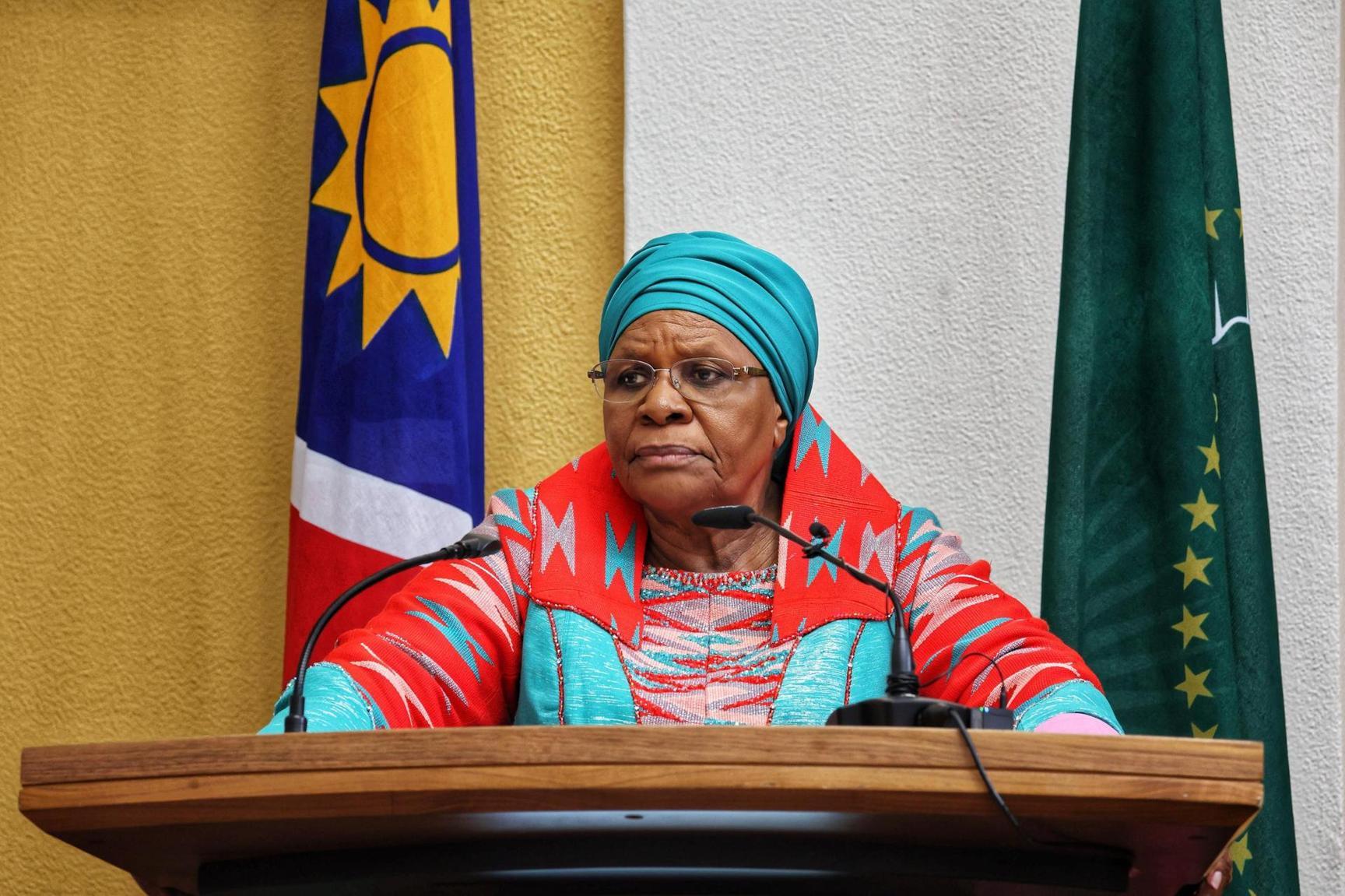Africa-Press – Namibia.
President Netumbo Nandi-Ndaitwah has defended her government’s ambitious plan to create around 550 000 jobs across various sectors of the economy, stressing that each government-led economic initiative is designed to generate employment.
Nandi-Ndaitwah made these remarks during the State of the Nation Address (Sona) question-and-answer session in response to questions from opposition leaders, including the leader of the official opposition in Parliament, on financing free tertiary education, access to land, unemployment and economic development concerns.
Responding to a question by Independent Patriots for Change member Immanuel Nashinge about how the government plans to create jobs in the creative and sport sectors, said nearly every activity within these sectors contributes to employment-creation.
She cited the film industry as an example: “Namibia is increasingly seen as an attractive filming location, and even a small production creates numerous jobs, from set designers to make-up artists and technical support.”
Responding to Affirmative Repositioning leader Job Amupanda’s call for investment in value chains, Nandi-Ndaitwah reiterated the government’s commitment to expanding manufacturing and agro-processing.
“For example, shoe production supports agro-processing since the materials often come from agriculture. Economic development often starts with one successful initiative, which can then expand into others.”
On concerns about providing free tertiary education, Nandi-Ndaitwah expressed confidence that full government funding is achievable. “When you factor in current subsidies to public institutions and students financial assistance, we are already covering a significant portion of the costs. With better management, we can close the remaining gap,” she said.
She argued that borrowing for education should be viewed as an investment rather than consumption, with long-term societal benefits. “If any laws are hindering progress, they must be amended,” she said. “If human factors are the issue, Cabinet must address them to ensure efficient and high-quality service delivery.”
On Namibia’s membership in the International Criminal Court (ICC), raised by Amupanda, Nandi-Ndaitwah recalled that public debate had taken place on the matter. She reaffirmed that the government remains guided by the will of the people.
Furthermore, the president responded to McHenry Venaani’s question about funding for free tertiary education. She said the government would mobilise resources through the national budget, public-private partnerships, and private sector involvement.
She also highlighted ongoing collaborations with oil and gas companies to establish a petroleum training institution, pointing out that Namibians are already being trained abroad.
“As Namibia prepares to become an oil-producing nation, we must invest in local capacity from catering services offshore to laundry services, ensuring that Namibian businesses are ready to participate in the oil and gas value chain,” she added.
Nandi-Ndaitwah defended the N$500 million earmarked for agricultural infrastructure in the national budget. She urged the private sector to become more actively involved, particularly in managing and expanding Green Schemes.
“The government has already invested in land and equipment. The private sector must also contribute resources to the table. Our aim is to empower small-scale farmers to contribute meaningfully to Namibia’s food security,” she added.
Nandi-Ndaitwah said genocide negotiations with Germany are progressing, but acknowledged the complexity of balancing various stakeholder interests. She welcomed progress made, particularly the understanding that the proposed €1.1 billion (approximately N$20 billion) is not the final figure.
Regarding the question of corruption, she acknowledged public frustrations, but pointed out that fear of retaliation often prevents people from providing concrete evidence.
She emphasised that even sensitive institutions like August 26 remain accountable for public funds, though national security considerations sometimes complicate public disclosures.
In response to Landless People’s Movement leader Bernard Swartbooi’s concerns about the slow implementation of capital projects, Nandi-Ndaitwah acknowledged the challenges local authorities face with population growth and budgeting, especially when local and central governments have different financial years, leading to delays in funding.
She highlighted the need to harmonise financial systems and laws to improve efficiency, particularly at the local level.
The president also touched on the issue of the 20% tax rate, assuring that the government is working to adjust taxes to remain competitive.
“We are seeing this trend across the region. These taxes are designed to make us competitive and attract investment,” she said.
Responding to Swartbooi’s question regarding Namibia’s oil sector, which now falls under the Office of the President, Nandi-Ndaitwah agreed that certain laws would have to be amended to improve the industry’s efficiency.
She mentioned that at an ongoing energy conference in Windhoek, investments in sectors like high-iron production were discussed, with foreign investors showing interest due to Namibia’s peace and stability.
For More News And Analysis About Namibia Follow Africa-Press






